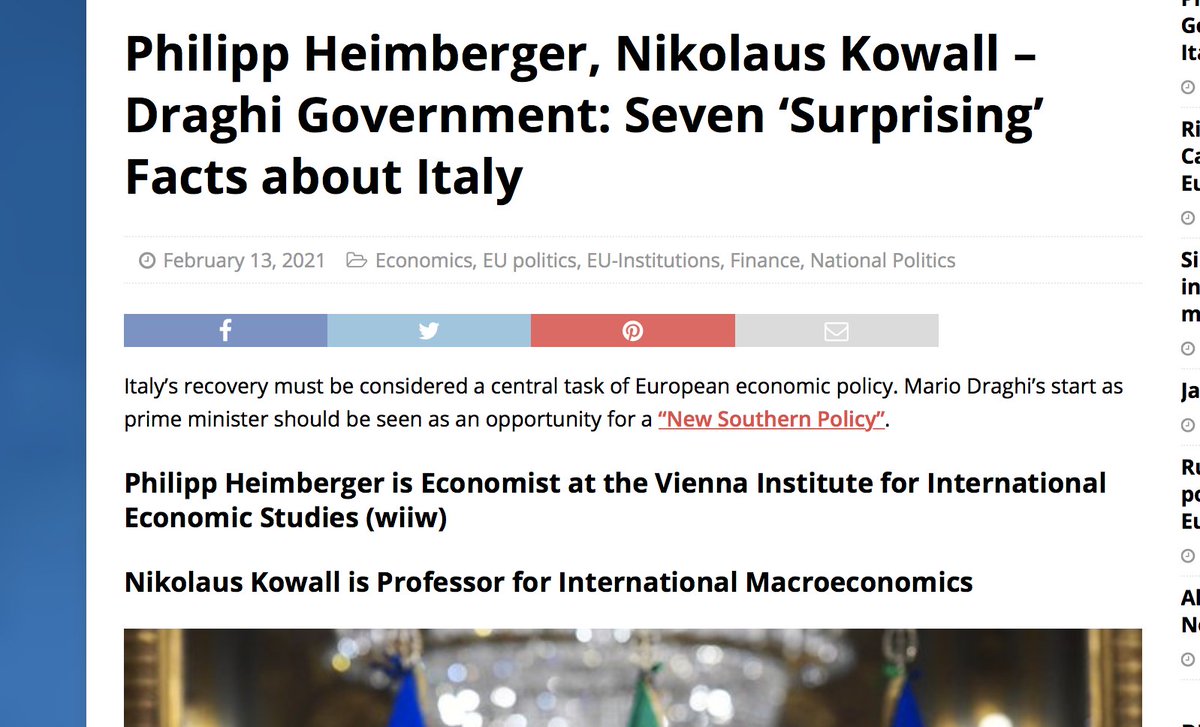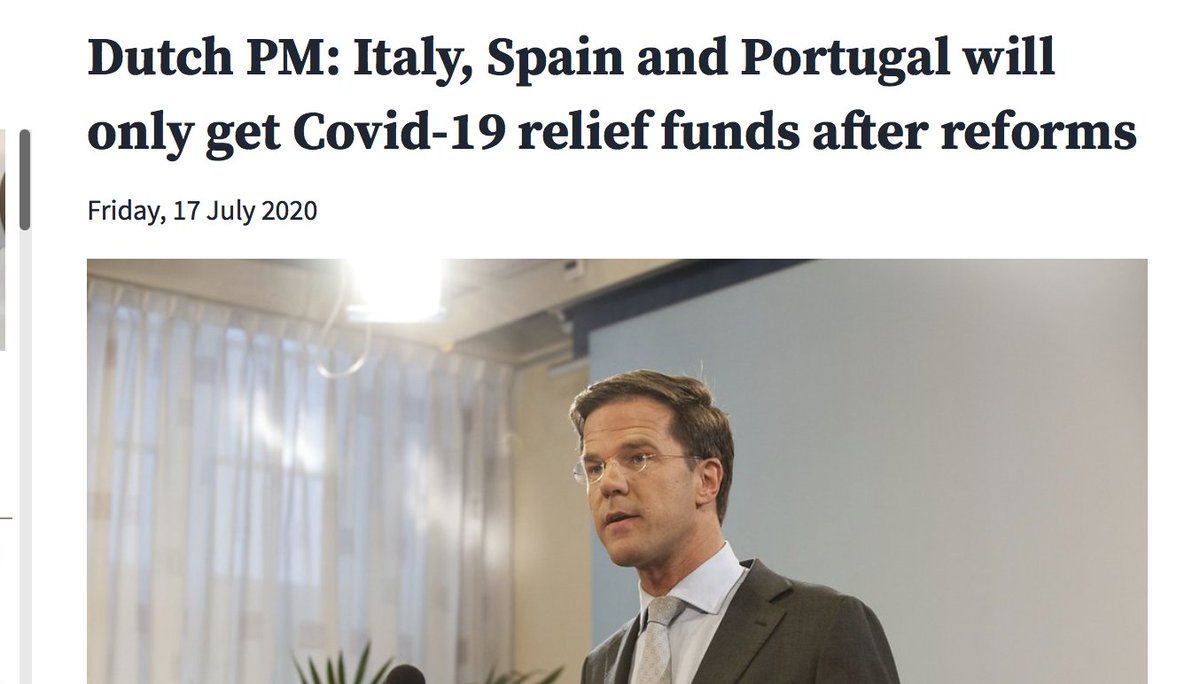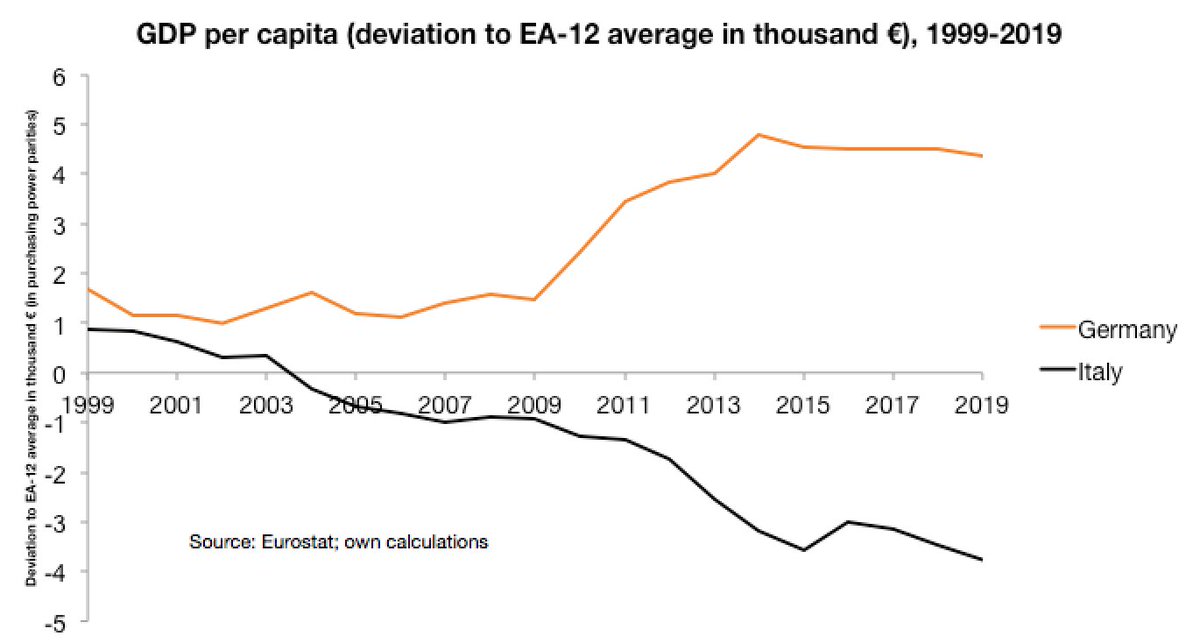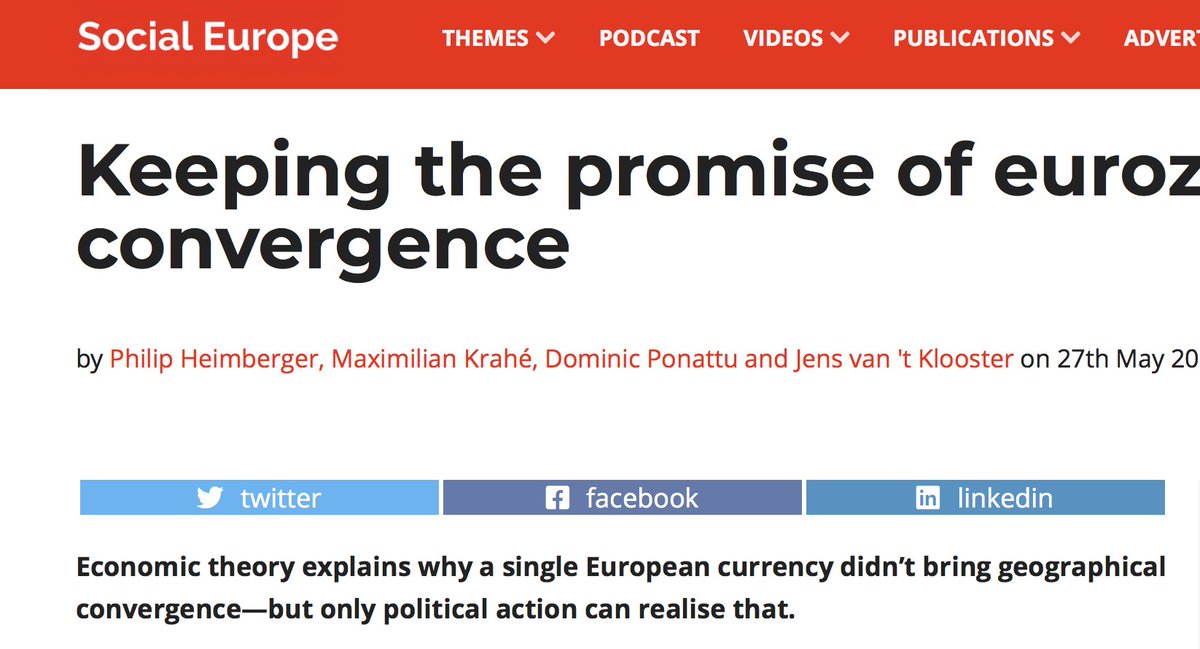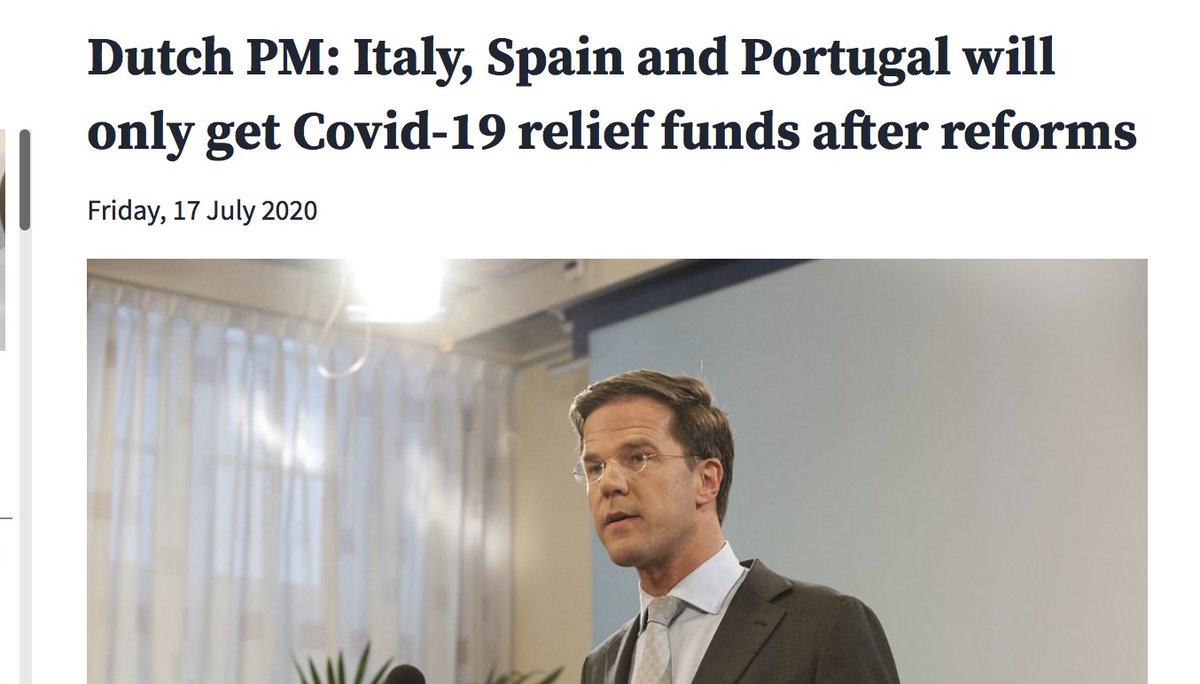
Sappiamo che i travisamenti dell'Italia sono diffusi in Germania, Austria, Olanda e oltre.
Ecco un articolo che presenta i dati per sfatare i miti. È tempo di un nuovo approccio verso l'Italia con l'insediamento di Draghi! #CAIN Thread /1
wiiw.ac.at/draghi-governm…
Ecco un articolo che presenta i dati per sfatare i miti. È tempo di un nuovo approccio verso l'Italia con l'insediamento di Draghi! #CAIN Thread /1
wiiw.ac.at/draghi-governm…

1. L'Italia non vive oltre i propri mezzi. Dal 2012, l'Italia ha visto rimanere le esportazioni di beni e servizi superiori rispetto alle importazioni. Il paese consuma quindi meno di quanto produce. 

2. Il debito privato è relativamente basso in Italia, la questione del debito non è quindi un problema per l'intera economia italiana. 

3. Il debito pubblico è elevato a causa di vecchi debiti che risalgono a decenni fa. Se si detrae l'onere del pagamento relativo agli interessi, il bilancio italiano è in realtà sempre stato in attivo dal 1992 ("avanzi primari"). 

4. Leggo regolarmente affermazioni che i sussidi del fondo di recupero dell'UE sono solo il prossimo e più grande giro di "regali" europei all'Italia. In realtà, l'Italia è stata per decenni un contribuente netto al bilancio dell'UE. 

5. L'Italia ha realizzato molte riforme liberali di mercato. La flessibilizzazione del mercato del lavoro ha portato un forte aumento dei contratti a tempo determinato. Tuttavia, queste riforme strutturali hanno contribuito a ridurre la crescita della produttività in Italia. 

6. L'Italia è il secondo Paese industrializzato più importante dell'UE. L'Italia gode della seconda maggiore produzione industriale dopo la Germania, esporta molti più beni industriali di quanti ne importi. 

7. Gli italiani non sono più ricchi dei tedeschi o degli austriaci: la famiglia media italiana ha in realtà un patrimonio privato superiore a quello della famiglia tedesca o austriaca. Ma la medesima famiglia media è chiaramente più prospera in Germania e in Austria. 

Se l'austerità fiscale e le riforme liberali del mercato non hanno migliorato le prospettive dell'Italia, un modo più promettente di procedere è provare una forte strategia di investimento e dare una spinta all'industria italiana lanciando una moderna strategia industriale.
Un'Italia forte sarebbe nell'interesse di coloro che vogliono che l'Europa preservi il suo modello di democrazia liberale socialmente equilibrata. E sarebbe nell'interesse di coloro che vogliono un'Europa forte per poter competere con gli Stati Uniti e la Cina.
In una prospettiva europea, la ripresa dell'Italia deve essere considerata un compito centrale della politica economica. L'inizio di Mario Draghi come primo ministro dovrebbe essere visto come un'opportunità per una "Nuova Politica del Sud" nei prossimi anni. #CAIN 

Grazie a @paolagorigiorgi per l'aiuto nella traduzione.
• • •
Missing some Tweet in this thread? You can try to
force a refresh







